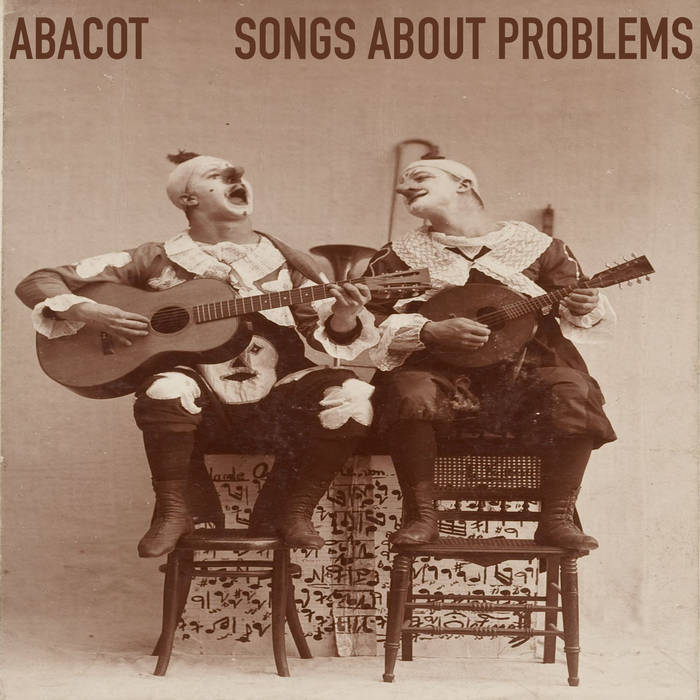Swim Camp – Steel Country | Album Review
/Self-released
Air travel has become a consistently more terrifying endeavor as I’ve grown older. With each passing year, I find myself increasingly anxious at the prospect of stepping foot on the massive metal machines that have reinvented global travel—both domestic trips and international ventures are now mere footnotes in the great span of time that constitutes our lives. The world’s longest nonstop commercial flight, which goes from Singapore to New York City, is nearly nineteen hours. And somehow, while my time in the air usually tops out at three hours, the takeoffs and landings nearly break me. My chest tightens, I get shaky, I drown everything out as waves of noise course through me until the plane has fully stopped on the runway.
Even then, for all the fear it’s started to cause me, aviation has its moments. Sometimes, a stroke of infinity has painted itself across the earth, and the windows of an aircraft are the best viewing place. Sometimes, sunlight crosses the sky and cuts through the exhausting, hopeless odor of seat 23D. These silent moments of salvation shine our neverending modern headache, undeniably bright even in their quiet entrances into our lives.
On Steel Country, Tom Morris’s third full-length under the Swim Camp moniker, passages of brilliance are impossible to ignore. A far cry from sleepless plane rides where the slightest slant of the sun’s rays is the only suggestion of joy, this album is a bountiful harvest of musicianship overflowing with a soft certainty, and is a perfect follow-up to 2021’s superb, washed-out, slow burner Fishing in a Small Boat. Steel Country sees Morris somehow manage to sharpen his already near-flawless songwriting instincts, constructing giddily addictive tracks with hooks swept up in waves of fuzz and distortion and tinted with electronic dissonance. It’s an album that leans into a delicate warmth only furthered by Morris’s gentle vocals, which provide the foundation for each track. The record forges a careful balance between rippling noise and quiet steadiness, and through this, Morris connects the threads of an existence in which, above a harsh sea of fears, questioning, and struggle, day breaks into bliss. It’s a quilt of friendships, memories, living rooms, half-thoughts, windows, lazy days, quick glances, empty streets, collective joy, and all the love in between, an ode to possibility in a life that’s full of it.
credit Sarah Phung
Steel Country is a record straight out of a sun-washed afternoon in the grass, and its opening track, “Line in Sand,” is like waking from a midday dream. Morris’s voice rings lightly over as he starts singing, “The money’s gone, I tried to tell you / His face was wrong, I couldn’t help you / People change, I’m not the same now / On my way, he had a breakdown” over warm acoustic tones, until everything kicks in. An enchanting central riff that reminds me of some of the foundational lightness of 22° Halo’s Garden Bed is interjected with playful electronic passages until the instruments are washed away and make way for “Dougie (For Sharyl),” an addictive meditation on unhealthy relationships. It’s hard to think of anything catchier than when Morris realizes, “Oh shit, he’s aiming at me,” followed by a rush to the head of spaced-out guitars, hard synths, and relentless drums that operates as a sugar-high-esque moment of musical synergy.
The album doesn’t let up in the slightest as it moves to “Pillow,” a gazey track built on a starry-eyed synth line that converges with guitars soaked in reverb and a plentiful helping of heavenly effects. It’s hard to think of a better way to lay the groundwork of an album’s soundscape than precisely what Swim Camp manages to accomplish on Steel Country’s first three tracks. Imagining a world of its own that simultaneously feels ours to live in and one which we must witness through windows, an eerie reckoning with the existence we dream of, the back-to-back-to-back from “Line In Sand” to “Dougie (For Sharyl)” to “Pillow” captures the heart. I have a feeling that’s exactly what Morris wants it to accomplish. By the time the last moments of “Pillow” sparkle away and the fugue-state passage that is “cLotine” takes over, you’re fully wrapped up in the record’s undeniable humanity.
The dream only grows clearer as Steel Country moves forward, taking us further into the skies above. “Everything” elucidates the consuming yearning of cold nights, envisioning the solitude of a walk past the house of a lover’s parents. As questions surrounding that person’s feelings bubble up inside, guitars blare, and drums crash while Morris is subdued to incomprehensibility, replicating the internal uncertainties plaguing the heart. The blushing warmth of “Cherry” is built on bright guitars and hypnotic drums that move into periods of growling electronics reminiscent of Alex G’s recent crushing synth passages on “Blessing.” Songs like “No” and “is this the plan” present an evolved version of the slow, sugary sweetness that characterized 2021’s Fishing in a Small Boat, giving lots of space for Morris’s tender voice. “Apple” wants you to believe it’s going to be a crashing, heavy track, coming in with fierce drums and dizzying crests of noise, but it’s only a lead-in to a song that truly embodies country sensibilities with its drawn-out guitars moving at an infectious, heel-tapping pace. It’s an embrace of distant adoration and care, the way that we reconnect with our feelings toward the joys and loves of our past, and is one of the record’s most emotionally potent ventures. “hevvin00” is a dive under the ice on a frozen-over lake in the hollow core of winter—everything feels submerged and out of reach, but the possibility within the washed-out sounds is tangibly exciting.
The final three tracks strike a different tone than their counterparts among the first three, bouncier than the rest of the record. Morris’s ear for a strong chorus emerges on “Heat Makes Cracks in the Bones,” which moves into a refrain that feels so effortless you wish it could last forever, and “Say Hi” comes in like a washing-machine-whirlwind that’s built for the pit, moving with a dancy, tumbling liveliness. The album feels complete by the time Steel Country closes out with “what I saw,” which begins like Etiquette-era CFTPA track and gradually sinks into washed-out lo-fi waves.
Steel Country’s completeness is the consequence of many factors—a thoughtfully curated tracklist, addictive riffs, thoughtfully placed thematic crescendos, extensive sonic diversity, a willingness to challenge expectations, as well as the sheer talent and musicianship of Tom Morris. At the heart of its successes, though, is the coherence of its array of soundscapes. Even when it moves from tracks that lean lo-fi to electronic passages, or from its gazy stretches to lighter ballads, the album presents a foundationally raw and stripped-back revision of historical effects-showered indie music.
That mesmerizing reinvention is best captured on my favorite track on the record, “Puddle,” a song that goes further into the territory of heaviness than anything I had expected to hear. The track begins with a headbanging riff that sits on layers of distortion and pure noise, all while a muffled recording plays, ending with a killer breakdown deserving of all the feedback loops in the world. In between those two points, the song builds with precision: at first, after letting its initial noise die down, we get clarity through the vocals, but then the instruments make their way back. Drums push the track forward as Morris drags out his words and begins to repeat the trance-like phrase “The puddle’s gettin’ deeper” until, in the utmost of parallels, his words are drowned out in the ocean of guitars, drums, bass, and even synths, all culminating in the aforementioned breakdown. It’s a decisive moment on the record—everything falls apart in the end, but you’re left with a beautiful view all the same. That’s exactly why I found myself writing about airplanes at the beginning of this whole affair; there’s something magical that courses through the veins of this album. It’s something as unreal and dreamlike as watching the world from forty-five thousand feet above the ground, and if this is what flying can feel like when we let go of our fears, then get me on the next plane.
Spencer Vernier is a student in Boston, Massachusetts who also happens to enjoy the process of writing and editing. He loves to talk about cats, poetry, his friends, and of course, music. He is a managing editor at Melisma Magazine, a student publication which you can find here!






